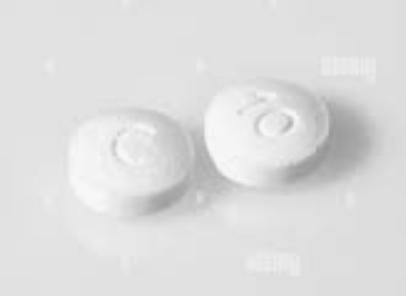Generic Mavenclad Availability
Last updated on Sep 10, 2025.
Mavenclad is a brand name of cladribine, approved by the FDA in the following formulation(s):
MAVENCLAD (cladribine - tablet;oral)
-
Manufacturer: EMD SERONO INC
Approval date: March 29, 2019
Strength(s): 10MG [RLD]
Is there a generic version of Mavenclad available?
No. There is currently no therapeutically equivalent version of Mavenclad available in the United States.
Note: Fraudulent online pharmacies may attempt to sell an illegal generic version of Mavenclad. These medications may be counterfeit and potentially unsafe. If you purchase medications online, be sure you are buying from a reputable and valid online pharmacy. Ask your health care provider for advice if you are unsure about the online purchase of any medication.
See also: Generic Drug FAQ.
Related patents
Patents are granted by the U.S. Patent and Trademark Office at any time during a drug's development and may include a wide range of claims.
-
Cladribine regimen for treating progressive forms of multiple sclerosis
Patent 10,849,919
Issued: December 1, 2020
Inventor(s): Dangond Fernando & Dotzauer Matthias
Assignee(s): Merck Patent GmbHSpecific oral dosings, specific oral dosage forms, and/or specific oral dose regimens including Cladribine can be effective for the treatment of progressive forms of Multiple Sclerosis, especially Primary Progressive Multiple Sclerosis and/or Secondary Progressive Multiple Sclerosis. Methods of treatment can be based on specific oral dosings, specific oral dosage forms, and/or specific oral dose regimens including Cladribine.
Patent expiration dates:
- November 23, 2038✓
- November 23, 2038
-
Cladribine regimen for treating multiple sclerosis
Patent 7,713,947
Issued: May 11, 2010
Inventor(s): De Luca; Giampiero et al.
Assignee(s): Merck Serono S.A. (Coinsins, Vaud, CH)The present invention is related to the use of Cladribine for the preparation of a pharmaceutical formulation for the treatment of multiple sclerosis, especially relapsing-remitting multiple sclerosis or early secondary progressive multiple sclerosis, wherein the preparation is to be orally administered and wherein re-treatments are possible.
Patent expiration dates:
- October 16, 2026✓
- October 16, 2026
-
Cladribine regimen for treating multiple sclerosis
Patent 8,377,903
Issued: February 19, 2013
Inventor(s): De Luca Giampiero & Ythier Arnaud & Munafo Alain & Lopez-Bresnahan Maria
Assignee(s): Merck Serono SAThe present invention is related to the use of Cladribine for the preparation of a pharmaceutical formulation for the treatment of multiple sclerosis, especially relapsing-remitting multiple sclerosis or early secondary progressive multiple sclerosis, wherein the preparation is to be the orally administered and wherein re-treatments are possible.
Patent expiration dates:
- May 31, 2026✓
- May 31, 2026
More about Mavenclad (cladribine)
- Check interactions
- Compare alternatives
- Pricing & coupons
- Reviews (4)
- Drug images
- Side effects
- Dosage information
- Patient tips
- During pregnancy
- FDA approval history
- Drug class: antimetabolites
- Breastfeeding
- En español
Patient resources
Other brands
Professional resources
Related treatment guides
Related/similar drugs
Glossary
| Term | Definition |
|---|---|
| Drug Patent | A drug patent is assigned by the U.S. Patent and Trademark Office and assigns exclusive legal right to the patent holder to protect the proprietary chemical formulation. The patent assigns exclusive legal right to the inventor or patent holder, and may include entities such as the drug brand name, trademark, product dosage form, ingredient formulation, or manufacturing process A patent usually expires 20 years from the date of filing, but can be variable based on many factors, including development of new formulations of the original chemical, and patent infringement litigation. |
| Drug Exclusivity | Exclusivity is the sole marketing rights granted by the FDA to a manufacturer upon the approval of a drug and may run simultaneously with a patent. Exclusivity periods can run from 180 days to seven years depending upon the circumstance of the exclusivity grant. |
| RLD | A Reference Listed Drug (RLD) is an approved drug product to which new generic versions are compared to show that they are bioequivalent. A drug company seeking approval to market a generic equivalent must refer to the Reference Listed Drug in its Abbreviated New Drug Application (ANDA). By designating a single reference listed drug as the standard to which all generic versions must be shown to be bioequivalent, FDA hopes to avoid possible significant variations among generic drugs and their brand name counterpart. |
Further information
Always consult your healthcare provider to ensure the information displayed on this page applies to your personal circumstances.

